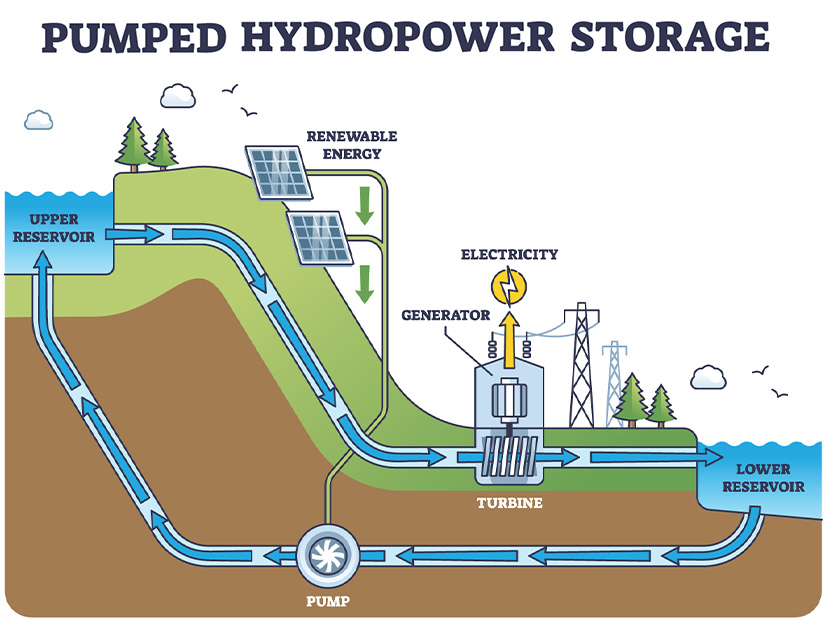Can work if the environment is good for it, has the same ecological and geological problems. Artificial water towers would be quite a big project maybe?
Science
Welcome to Hexbear's science community!
Subscribe to see posts about research and scientific coverage of current events
No distasteful shitposting, pseudoscience, or COVID-19 misinformation.

It seems like you'd lose a fair bit of energy from powering the pump and from the turbine not capturing 100% but I don't actually know how it compares to other types of energy storage. To me it seems like you're probably better off heating something up, like turning that pool of water into steam, or finding a material that can absorb a lot of heat but I have no actual data on that.
You're talking about Thermal Storage, indeed a complex and costly field in the research for out-of-optimal conditions for electricity production I.e. nighttime for solar power
I know that's a thing I just don't know how it compares to what OP is talking about
Turbines are extremely efficient (close to 100%), and almost all large scale power sources use them already (nuclear, hydro). Powering the pump isn't "lost" energy, it's the energy transformed from solar into potential energy from pumping.
Of course not all of the energy used to power the pump is lost (that's the whole idea) but there is still some energy loss. Maybe it's only a small amount like you say with the turbine but that's what I was referring to.
Make a 2 tier damn where the second hydro plant powers a pump to make the water go all the way to the top
I'm not following.
There's no such thing as free energy; losses due to friction would make this less efficient than the one-tier system
I think hydro power storage is a good idea where it can be done (and especially where you have existing hydro power), but most places don't have a giant reservoir nearby that could be used for this purpose. Something that I think could be a better option for widespread grid storage are flow batteries. These work by basically pumping an electrolyte solution back and forth across a membrane to store or discharge energy. They aren't as energy dense as lithium batteries, but they have some advantages like being able to be used indefinitely without storage capacity degradation (though you do have to do upkeep on the pumps and whatever else). They're already used in places like hospitals and for grid storage in China. These current flow batteries use vanadium, but there's research being done on flow batteries that use iron instead, which is cheap and abundant in comparison. Short video on that: https://youtu.be/mu6mZZuPdpI
Recent forays into trying to do more pumped hydro in the US: https://www.hydroreview.com/hydro-industry-news/pumped-storage-hydro/alabama-power-files-with-ferc-to-surrender-chandler-mountain-pumped-storage-permit/
Recent forays into trying to do more pumped hydro in the US: https://www.hydroreview.com/hydro-industry-news/pumped-storage-hydro/alabama-power-files-with-ferc-to-surrender-chandler-mountain-pumped-storage-permit/
Probably a way to make wind and solar more viable.
Regardless, the bulk of what will allow us to have a civilization powered by renewables is going to be cutting down consumption (and staggering it with a smart grid): not driving cars, arranging and insulating buildings so that they don't lose as much of their temperature differential to the outside (and also don't need cars to get around), making things that are designed to be repaired instead of replaced, using direct combustion for heat, and human-power wherever feasible.
In short, concentrating most energy consumption at point-of-use for better efficiency and less materials, and keeping the remainder direct and human-scaled.
And imho it is still going to make more sense to fill in the gaps for the base load with biomass from coppiced trees.


